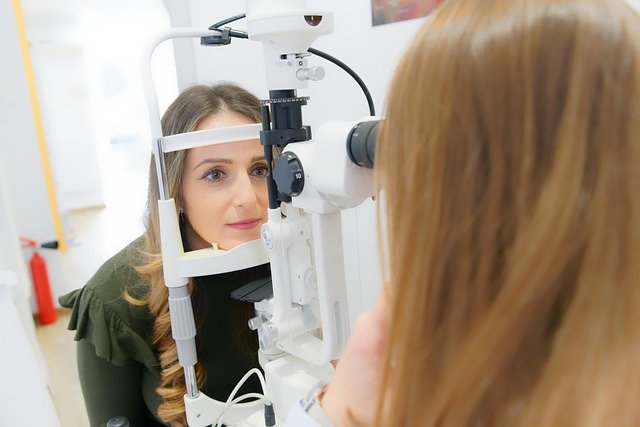Foods, Herbs, and Habits Often Linked to Testosterone Health
Discover the power of natural solutions in optimizing testosterone levels! Explore the benefits of specific foods, herbs, and habits that can support hormonal balance and overall well-being. Learn how simple lifestyle choices can make a significant impact on your health.

What role does diet play in testosterone health?
Diet plays a significant role in hormonal balance, including testosterone production. Certain nutrients are essential for the body to produce and maintain healthy testosterone levels. For instance, zinc is a crucial mineral for testosterone production, and it can be found in oysters, beef, and pumpkin seeds. Vitamin D, often called the “sunshine vitamin,” is another important nutrient linked to testosterone health. Fatty fish like salmon and mackerel are excellent sources of vitamin D and omega-3 fatty acids, which may also support hormonal balance.
Which foods are commonly associated with testosterone support?
Several foods are often cited for their potential to support testosterone health:
-
Eggs: Rich in protein, healthy fats, and cholesterol, which is a precursor to testosterone.
-
Pomegranates: Contains antioxidants that may help reduce oxidative stress and support testosterone levels.
-
Brazil nuts: High in selenium, a mineral linked to testosterone production.
-
Leafy greens: Spinach and kale are rich in magnesium, which may help boost testosterone levels.
-
Avocados: Contain healthy fats and boron, a mineral associated with testosterone health.
It’s important to note that while these foods are often linked to testosterone health, their effects can vary among individuals, and they should be part of a balanced diet.
Are there herbs traditionally used for testosterone support?
Several herbs have been traditionally used to support testosterone health and overall vitality:
-
Ashwagandha: An adaptogenic herb that may help reduce stress and potentially support testosterone levels.
-
Fenugreek: Some studies suggest it might help maintain healthy testosterone levels.
-
Ginger: Known for its anti-inflammatory properties, it may also support testosterone health.
-
Tribulus terrestris: Often used in traditional medicine to enhance male vitality.
-
Maca root: While not directly linked to testosterone, it’s associated with improved libido and energy.
While these herbs have traditional use and some research backing, it’s crucial to consult with a healthcare professional before adding any new supplements to your regimen.
How do lifestyle habits impact testosterone levels?
Lifestyle habits play a significant role in hormonal health, including testosterone levels. Regular exercise, particularly resistance training and high-intensity interval training (HIIT), has been shown to potentially boost testosterone levels. Adequate sleep is another crucial factor, as testosterone production peaks during deep sleep cycles. Stress management through practices like meditation or yoga can help reduce cortisol levels, which, when elevated, can negatively impact testosterone production.
What unique insights exist about testosterone health in different regions?
Testosterone health concerns and approaches can vary across different regions and cultures. In some Asian countries, traditional medicine practices like acupuncture and herbal remedies are commonly used to support hormonal balance. In Mediterranean regions, the diet rich in olive oil, nuts, and fish is often associated with better overall health, including hormonal balance. In Nordic countries, the emphasis on outdoor activities and exposure to natural light, despite long winters, may contribute to better vitamin D levels, which is linked to testosterone health.
Are there specific natural remedies known to support testosterone levels?
While many natural remedies are touted for testosterone support, it’s important to approach them with caution and skepticism. Here’s a comparison of some popular natural remedies and their potential benefits:
| Remedy | Potential Benefits | Scientific Evidence |
|---|---|---|
| Zinc Supplementation | May help increase testosterone in zinc-deficient individuals | Moderate evidence |
| Vitamin D | Could support testosterone levels, especially in vitamin D deficient people | Moderate evidence |
| DHEA | Sometimes used to boost testosterone, especially in older adults | Limited evidence, mixed results |
| Tongkat Ali | Traditional herb claimed to boost testosterone | Limited scientific evidence |
| D-Aspartic Acid | Amino acid sometimes used for testosterone support | Mixed results in studies |
Prices, rates, or cost estimates mentioned in this article are based on the latest available information but may change over time. Independent research is advised before making financial decisions.
In conclusion, while various foods, herbs, and lifestyle habits are often associated with testosterone health, it’s essential to approach this topic holistically. A balanced diet, regular exercise, adequate sleep, and stress management form the foundation of hormonal health. While natural remedies can potentially offer support, they should not replace professional medical advice or treatment when necessary. Always consult with a healthcare provider before making significant changes to your diet or supplement regimen, especially if you have concerns about your testosterone levels.
This article is for informational purposes only and should not be considered medical advice. Please consult a qualified healthcare professional for personalized guidance and treatment.




